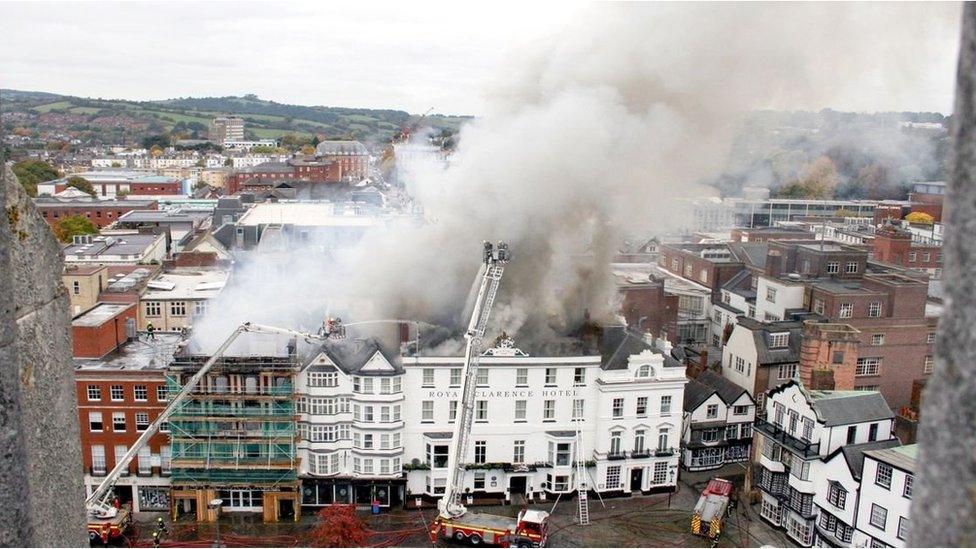'People could die' in Devon and Somerset rural firefighter shortage
- Published
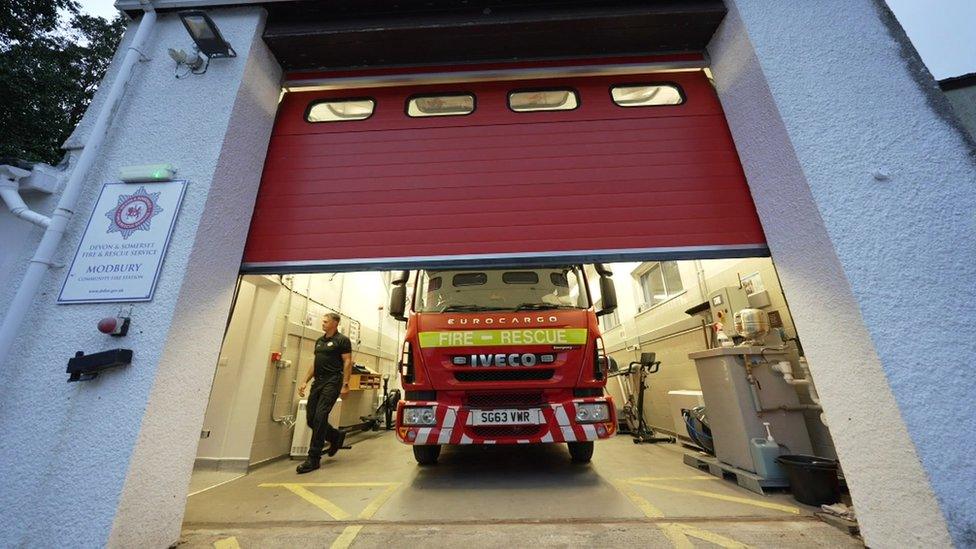
Modbury Fire Station is hoping to recruit five firefighters
A Devon councillor says there is an urgent need to address an ongoing shortage of on-call firefighters in rural areas.
Conservative Councillor Jonathan Hawkins said Dartmouth fire station needed to recruit six firefighters.
In Modbury, the service is aiming to recruit five firefighters.
Devon and Somerset Fire and Rescue Service said it was "constantly" monitoring firefighters' availability to ensure risks were managed.
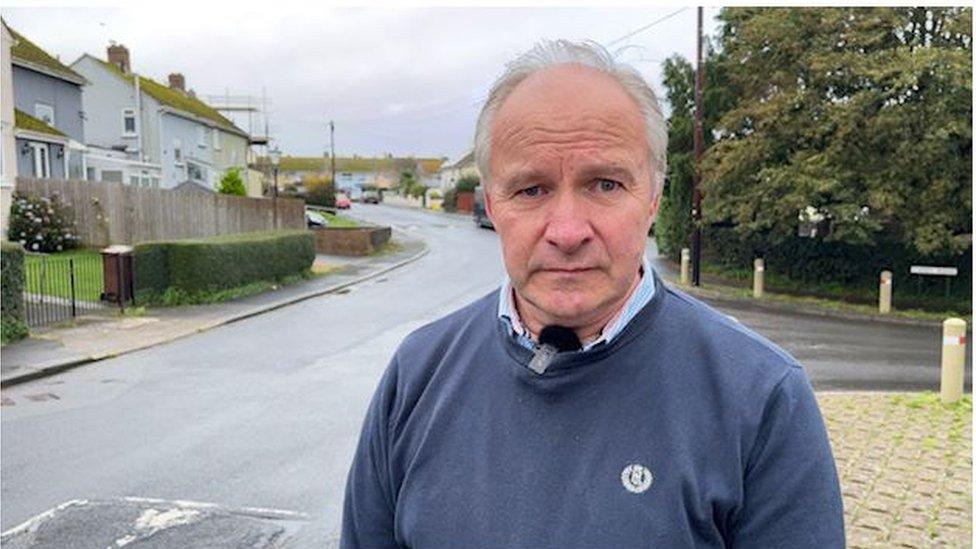
Jonathan Hawkins said more firefighters were needed
Mr Hawkins said: "I am really concerned, we know how important it is to get to your house as fast as possible.
"We've got to train more firefighters as fast as we can, because people could die because of this."
There are 112 fire appliances in Devon and Somerset, external, 13 of them are crewed 24 hours a day, seven days a week.
The remaining 99 engines are staffed by on-call firefighters, previously referred to as retained crew, who head to the fire station when there are alerted to a shout by a pager.
In August, there were five occasions when the service reached Business Continuity 3, meaning fewer than 66 of the 112 appliances were available.
As a result, it had to reduce its response plans to a maximum of three appliances per incident in order to manage risk.
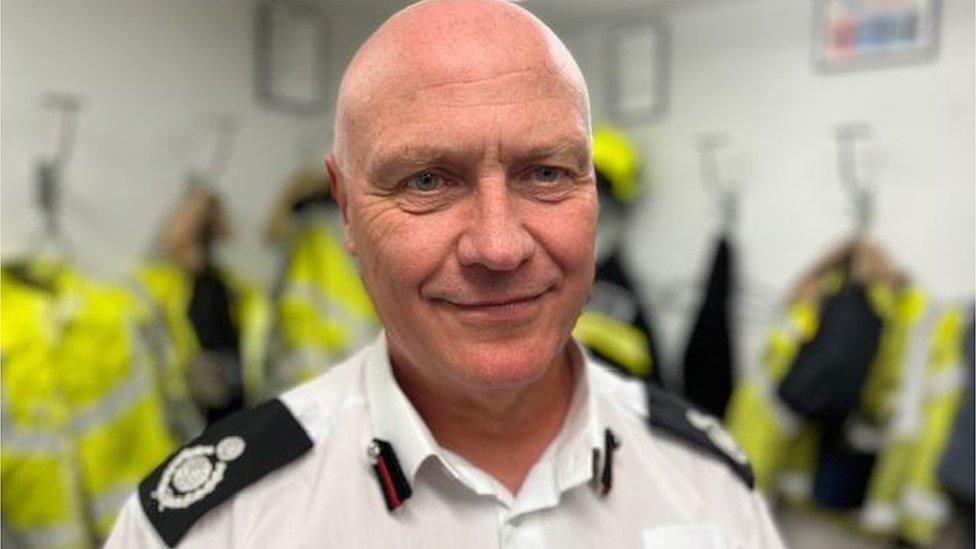
Assistant Chief Fire Officer Gerald Taylor said coverage was really good at night time when the risk to life was highest
Assistant Chief Fire Officer Gerald Taylor said there was still plenty of firefighter availability at night time when the risk to life was highest.
"There's always greater risk at night, our availability when we have that greatest risk is near enough 100% all of the time," he said.
In order to be on-call, a firefighter has to be able to get to the fire station within five minutes.
To leave the station, an engine has to be crewed by at least four firefighters.
If there are fewer than four firefighters able to get to the station within five minutes, the engine has to go "off-the-run", meaning the appliance is unavailable to respond to an incident and an appliance is sent from another station.
The service said one factor was that people in rural areas were often having to drive a long way from home to reach employment and that meant they often could not be available during the day.
Sophie Weeks, 30, one of nine on-call firefighters in Modbury, is contracted to provide 63 hours of on-call cover a week.
But her part-time job as a dispenser at a GP surgery is more than five minutes' drive from the station, so she is often unavailable during the day.
She said: "During the day, most of us, including myself, are at work, so, unfortunately, the truck is off-the-run because we don't have the people.
"We definitely need more crew here and at other stations as well.
"We want to put the truck on and available as much as we can to get out those doors to help people on their worst day. It is what we've trained for."
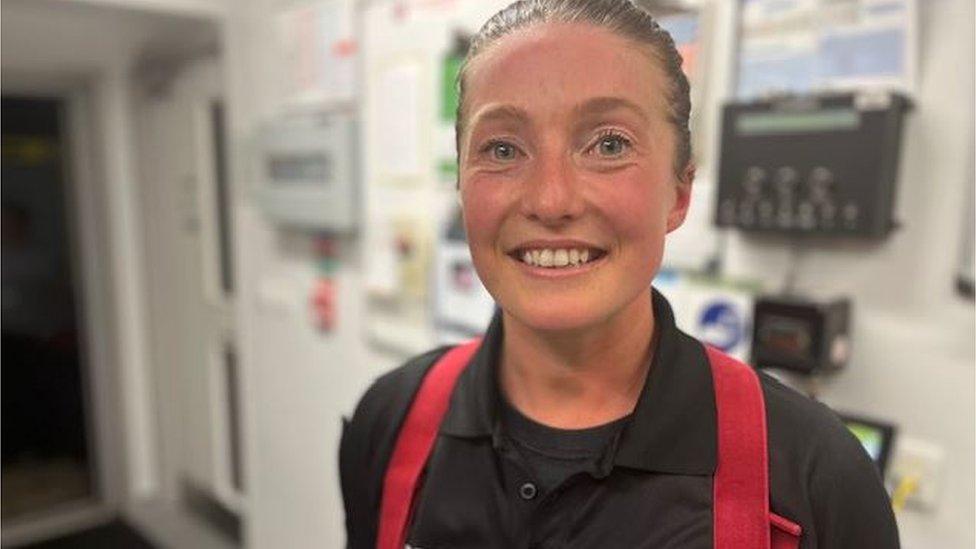
Sophie Weeks, 30, is one of nine on-call firefighters in Modbury
Ms Weeks said she would definitely encourage other people to get involved.
"You never know what you're going to get when you go out the doors," she said.
"The life skills that you get with it are amazing, you never stop learning and it's helping the community."
Barrie French, who was the station commander in Dartmouth for 19 years until he retired in 2009, said the shortage was partly linked to an increase in the number of second homes in the area, and the increased financial pressure on employers, which meant they were less likely to let staff be on-call for the service while they were at work.
"It's got very bad here," he said.
"All the years I was in [the service], there's always been 20 firefighters for a two-pump station.
"Dartmouth at the moment is down to just seven. They can only manage to crew one appliance at the best of times.
"A lot of the time we've got no cover at all here, and that's a bit worrying."
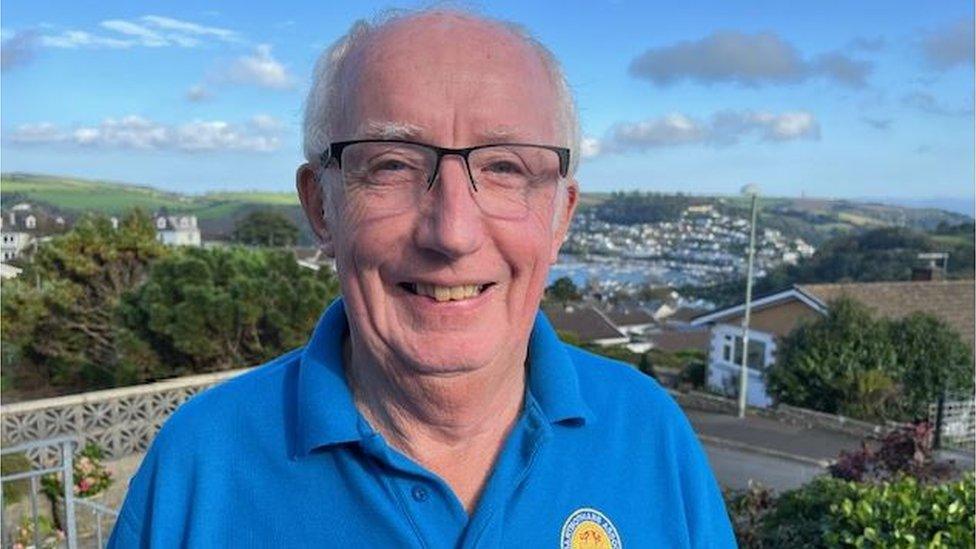
Barrie French said: "A lot of the time we've got no cover at all here, and that's a bit worrying"
He added: "If you ever do have a problem, you expect to pick up a phone and dial three nines and see a big red engine come up the road, in 10 to 15 minutes at the most, but that might not happen these days."
Mr Taylor said the service was able to temporarily move wholetime firefighters to on-call fire stations in order to ensure response times were kept as low as possible when there were gaps in the availability of on-call firefighters.
For the week 25 September to 1 October, he said there were six instances of full-time firefighters being sent to on-call stations.
The service said full-time firefighters travelled a total of 180 miles (290km) between their home stations and the on-call ones where they were providing cover in that week.
"If staff in our Operational Resourcing Centre see a particular area where we are looking a bit light for cover, they will make sure we move either firefighters or fire engines into those locations to make sure that risk is being mitigated," said Mr Taylor.
"That's being monitored 24/7 in our control."
The fire service aims to respond to house fires within 10 minutes of the emergency call being answered.
In Devon and Somerset, the service says the rural nature of the area means that is not always possible, so it has a target of attending 75% of dwelling fires in 10 minutes.
The last time the service met that target was in April to June 2021, and, in April to June 2023, the service was arriving at dwelling fires within 10 minutes 71% of the time.
The service said it had introduced a "Payment For Availability" system, external as part of its efforts to recruit more on-call firefighters.
It said it was also running social media campaigns and its availability figures are among the best in England at a time when many fire services are having recruitment challenges.
Figures for the April to June quarter show the service's "standard pumps" were available for 77% of the time and its "risk critical pumps" were available 93% of the time; but both these are below target (85% and 98% respectively).
Mr Hawkins said he worried about the risks for people in areas where appliances were unavailable.
"Those families, those people, they could lose their homes within minutes, and it's really important that response times are quick, and that's why we need as many retained firefighters as possible," he said.

Follow BBC News South West on Twitter, external, Facebook, external and Instagram, external. Send your story ideas to spotlight@bbc.co.uk.
- Published19 September 2019
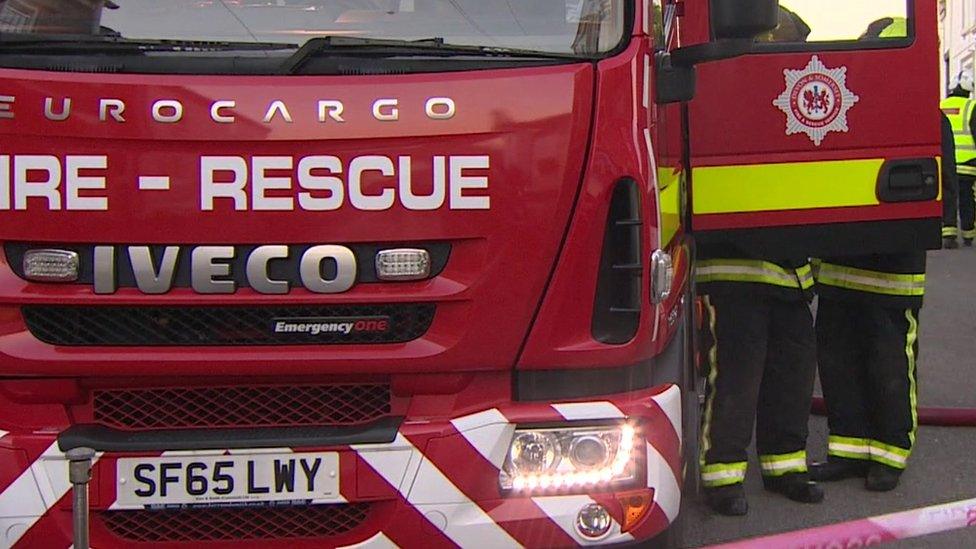
- Published28 May 2019
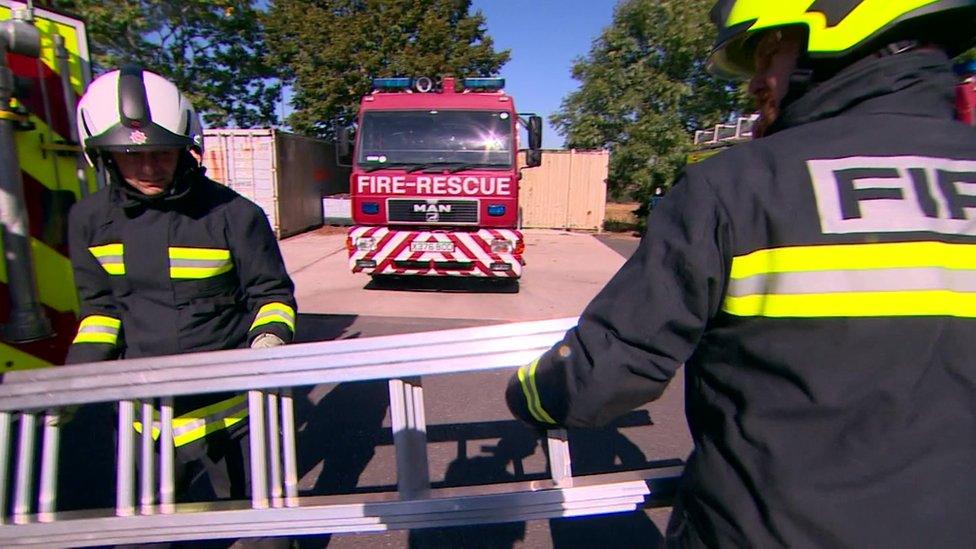
- Published30 January 2019
